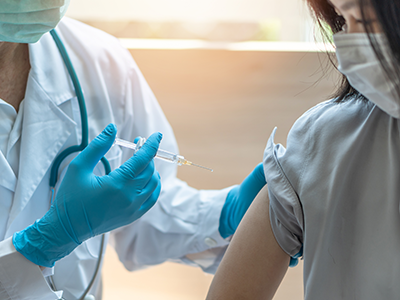Please note: As we continue to learn more about COVID-19, the information in this article may change. You can find our most up-to-date information about coronavirus here.
If you’re pregnant or thinking about getting pregnant, you’re probably wondering how coronavirus (COVID-19) may impact your pregnancy. To help you, we’ve compiled some frequently asked questions which cover concerns about getting pregnant or being pregnant during COVID-19, as well as how the virus may affect infants.
Does COVID-19 affect the fetus?
According to the Centers for Disease Control (CDC), mother-to-child transmission of coronavirus during pregnancy is rare. However, as we learn more about COVID-19 and how it affects the body, this may change. If you have COVID-19 during your pregnancy, your doctor may want to evaluate you more often throughout the rest of the pregnancy.
Does being pregnant put you at higher risk for contracting COVID-19?
A woman’s immune system can be different during pregnancy, but based on what we know, being pregnant does not seem to put women at higher risk for getting the virus. However, similar to what is seen in the general population, a person’s overall health can affect their risk of having more problems from COVID-19.
Should we delay getting pregnant until a vaccine is developed?
A vaccine will help prevent the COVID-19 infection during pregnancy. However, development and availability of the vaccine may take several years, and, depending upon your family planning, you may or may not want to wait to conceive.
What precautions should I take now if I’m pregnant?
If you are pregnant, you should do your best to protect yourself from COVID-19. This includes avoiding people who are sick or who have been exposed to the virus, cleaning your hands often using soap and water or an alcohol-based hand sanitizer, cleaning and disinfecting frequently touched surfaces daily and practicing social distancing.
How does COVID-19 impact prenatal care visits?
It is important to monitor your own health and overall growth and health of the baby during your pregnancy, just like before the COVID-19 pandemic. Some prenatal care can be done by telehealth approaches while other types of care will require you to go into a clinic or hospital. You should not delay starting prenatal care or avoid follow-up prenatal appointments because of COVID-19. Prenatal care is important for the health of the mother and baby and so this should be continued. Individual doctors’ offices and providers may have special ways in which they are providing care during this time.
Are there any special medications or precautions to take prior to getting pregnant during the pandemic?
There are no special medications or precautions to take prior to getting pregnant during the COVID-19 pandemic. As for any woman of childbearing age, we recommend a prenatal vitamin with folic acid. It is important to take good care of yourself by eating a healthy diet, exercising and getting proper sleep.
Do infants have a higher risk during the COVID-19 pandemic?
Any age group can be affected by COVID-19. In the pediatric age group, infants seem to be more affected than school-aged children. Infants can become sick more quickly and so it is important to bring your infant to their doctor or the emergency room right away if you feel they are having symptoms of COVID-19. The most common symptoms in infants can be fever and poor feeding as opposed to older children who more often have fever, cough and shortness of breath.
How can I make sure my newborn doesn’t get the virus?
Hand hygiene and social distancing are extremely important for protecting newborns. Limit visitors once your baby gets home and require any visitors you allow to wear a mask/facial covering.
Can COVID-19 pass to a baby through breast milk?
So far, the virus has not been found in breast milk. To avoid spread of COVID-19 while nursing, be sure to wash your hands before touching your baby and wear a mask/facial covering, if possible, while breastfeeding.
Please note: information about COVID-19 transmission is emerging daily. The recommendations in this article are current as of the publication date. Please consult resources such as the CDC and the WHO for the most recent guidance.
 https://riseandshine.childrensnational.org/wp-content/uploads/2026/02/olympics-feature.png
300
400
webteam
https://riseandshine.childrensnational.org/wp-content/uploads/2017/11/childrens_riseandshine_logo.jpg
webteam2026-02-05 16:41:512026-02-06 08:51:52What the Winter Olympics can teach our children
https://riseandshine.childrensnational.org/wp-content/uploads/2026/02/olympics-feature.png
300
400
webteam
https://riseandshine.childrensnational.org/wp-content/uploads/2017/11/childrens_riseandshine_logo.jpg
webteam2026-02-05 16:41:512026-02-06 08:51:52What the Winter Olympics can teach our children





















Leave a Comment
Want to join the discussion?Feel free to contribute!